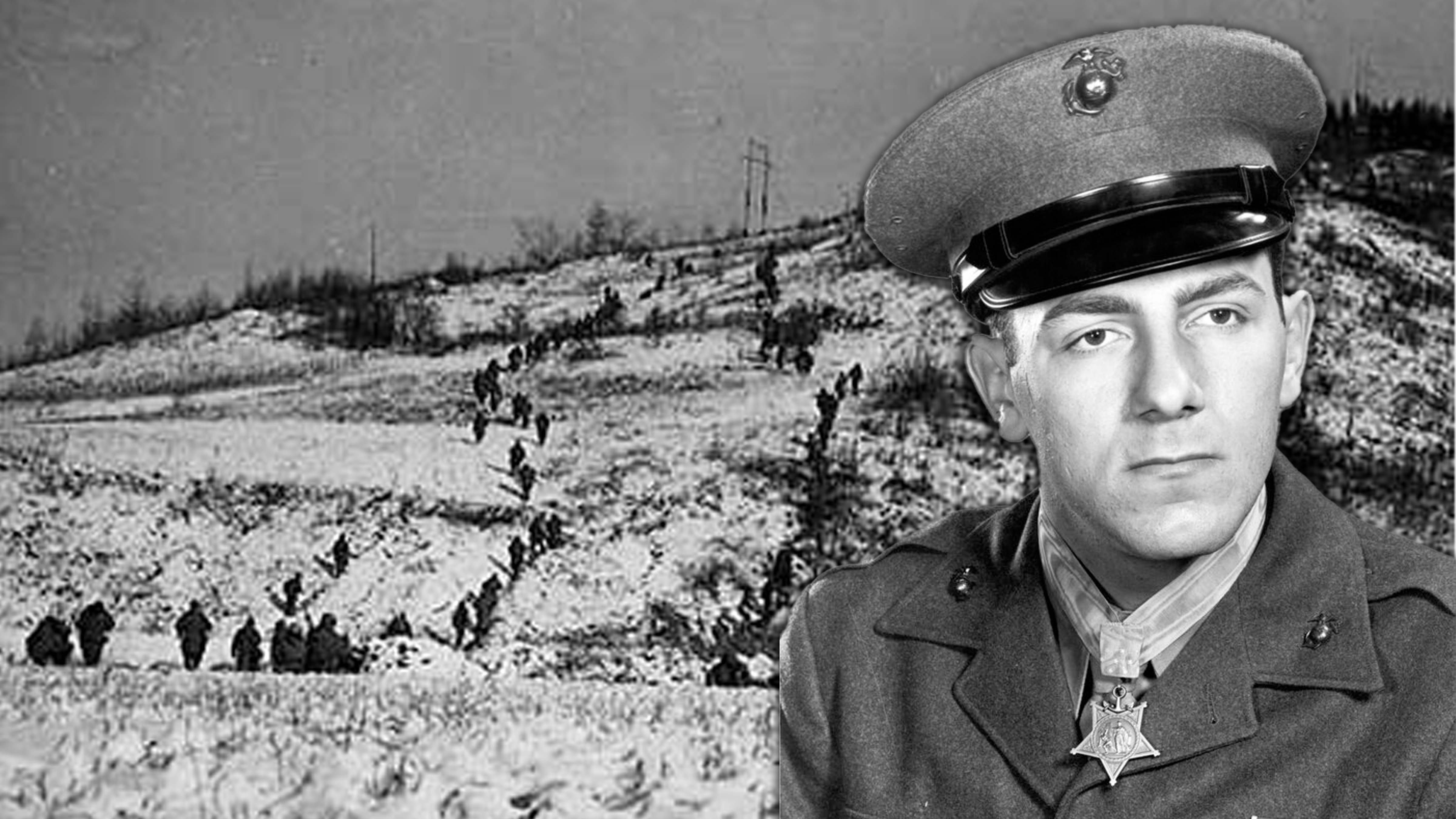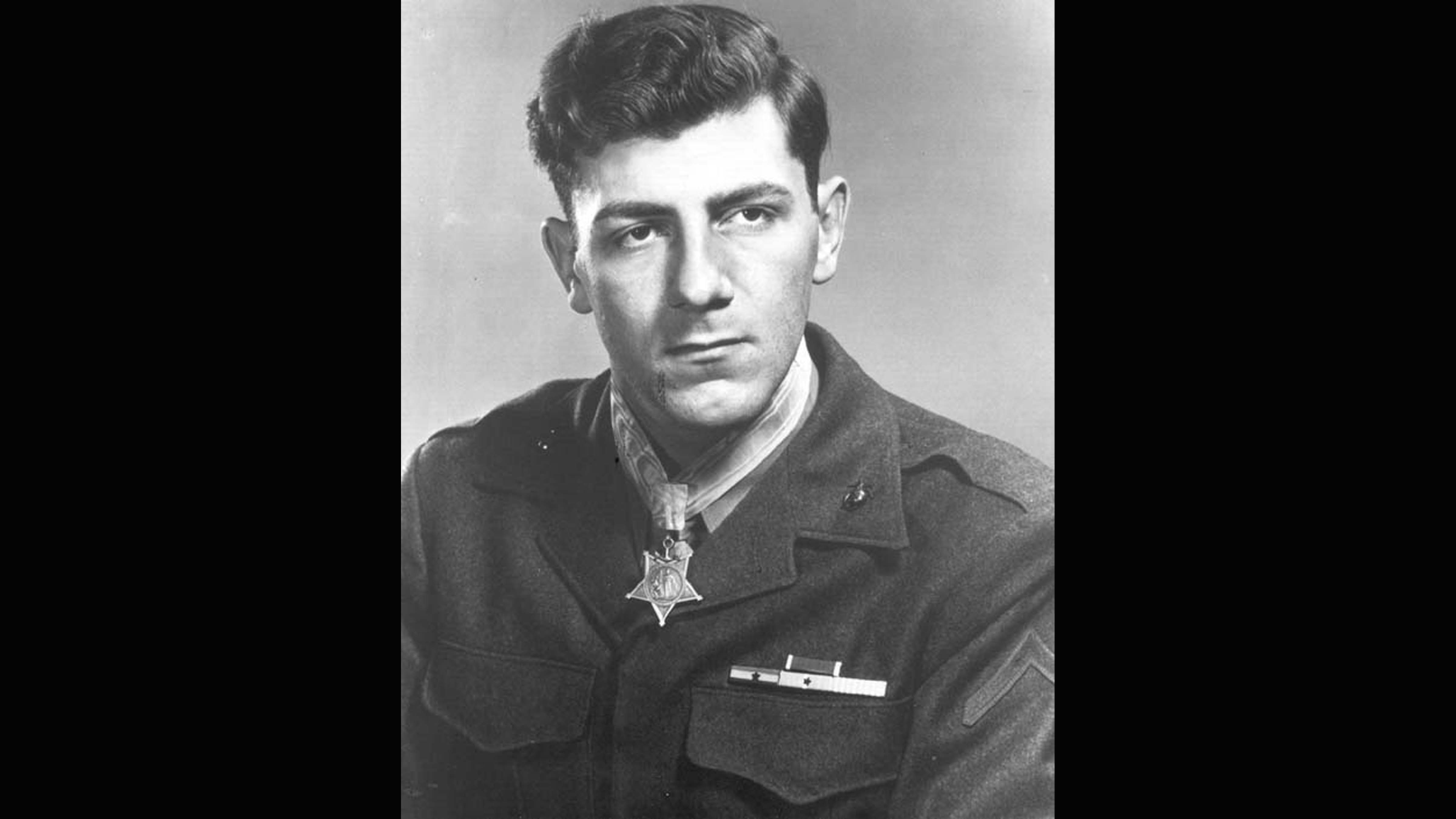This Marine batted away a dozen grenades with an E-tool in Korean War battle
Surrounded by a force of 1,400, Pvt. Hector Albert Cafferata Jr. battled against all odds. As the enemy threw grenades, he swatted them back.Joshua Skovlund
Posted Yesterday

Pvt. Hector Cafferata repelled a regimental sized ambush in the middle of the night on Nov. 28, 1950. USMC photos.
On Thanksgiving 74 years ago, at the height of the Korean War, the sound of gunfire abruptly woke Marine Pvt. Hector Albert Cafferata Jr. He and his squad held Fox Hill during the Battle of Chosin Reservoir, and a regimental-sized Chinese People’s Volunteer Army — a force of approximately 1,400 soldiers — sprung an ambush two hours past midnight.
Cafferata, then 23, was assigned to Company F, 2nd Battalion, 7th Marines, 1st Marine Division. He and over 200 Marines were tasked with protecting the Toktong Pass, an escape route through the Nangnim Mountains near the Chosin Reservoir in modern-day North Korea.
An initial hail of gunfire, grenades, and mortars knocked out nearly everyone in Cafferata’s squad, creating a weak spot in the defense perimeter, but Cafferata continued fighting, without a jacket in the pre-dawn winter cold. The Washington Post reported that fellow wounded Marine Kenneth Benson was initially blinded by a grenade blast during the attack but continued helping Cafferata by reloading his rifle.
Cafferata also landed on a desperate but ingenious way to send enemy grenades back toward the enemy.
“For the rest of the night, I was batting hand grenades away with my entrenching tool while firing my rifle,” Cafferata said in a 2001 interview with Florida’s Charlotte Sun newspaper. “I must have whacked a dozen grenades that night with my tool. And you know what? I was the world’s worst baseball player.”
Described as “Stouthearted and indomitable” in his Medal of Honor award citation, Cafferata managed to repel the ambush single-handedly, though it was temporary. The Chinese soldiers launched a vicious second wave in the morning hours.
During the fierce fighting, a grenade landed near a group of wounded Marines, and Cafferata threw it back under heavy fire. This time, it detonated after leaving his hand and severely wounded his right arm and hand with shrapnel. That didn’t stop him, though.

“Courageously ignoring the intense pain, he staunchly fought on until he was struck by a sniper’s bullet and forced to submit to evacuation for medical treatment,” reads the award citation.
Before getting evacuated, Cafferata is credited with killing 15 enemy soldiers and wounding several others. In Peter Collier’s 2003 book “Medal of Honor: Portraits of Valor Beyond the Call of Duty,” Cafferata’s Marine officers recalled how they counted about 100 dead Chinese soldiers where he had held the line. Still, they did not report that number because “they thought that no one would believe it.”
The Washington Post reported that Cafferata spent 18 months recovering in military hospitals. President Harry S. Truman presented him with the Medal of Honor on November 24, 1952.
He passed away on April 12, 2016, in Venice, Florida.
https://taskandpurpose.com/history/marine-korean-war-moh/




